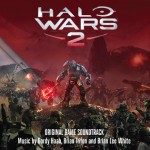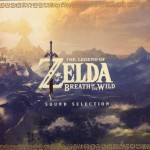So, I’m a bad man. The only Shinobi game I’ve ever played is the original one on the Game Gear. Amazing game. Got all the way to the end and couldn’t figure out the crazy puzzle that was the last level. Anyway, the music was pretty cool, but I’ve always heard that the Genesis titles had the best music, and I sort of just figured I’d never know because it was too late to go back and “catch up.”
SEGA, however, had other plans, and released the super snazzy Legend of Joe Musashi: SHINOBI Music Collection, the latest entry into SEGA’s retromazing series of classic game soundtracks. I’d compare this one to the Fantasy Star box that we reviewed last month, as you’re going to find 4-discs with different versions of some of the same scores here, but yeah, I can’t believe I missed out on this series. To make an excuse, I didn’t own a Genesis until very late in the game, as I was mainly (and still am) a Nintendo guy!
Anyway, prepare to get sliced in our review of the SHINOBI Music Collection after the jump!
I’ll be honest and tell you that the first disc doesn’t do all that much for me. It features music from the original Shinobi for the arcade and Sega Mark III (including the PSG and FM versions), as well as the Alex Kidd in Shinobi World soundtrack from the Master System. When it comes to Shinobi, the tracks are pretty damn funky, but they’re mainly too short and underdeveloped (i.e. very repetitive). “BGM 4 (Mission 2-2)” is probably my favorite of the bunch with its thick Asian vibe and groovy flava’ that will have you bopping your head. For a bit of fun, you may enjoy the cheesy white guy saying, “WELCOME TO BONUS STAGE” during “Bonus Stage.” It’s absolutely hilarious and will catch you off guard. In terms of sound options, I’d say go with the FM version, as it’s nice and punchy, and super retro.
For Alex Kidd in Shinobi World, it’s great how they work in some of the themes from Shinobi. Also, while the original Shinobi composers remain anonymous, we know that Alex Kidd in Shinobi World was handled by XOC. I like fast-paced “Round 1 (BGM2)” and the super cheery “Round 2 (BGM 3).” There’s even a some unused tracks here, with “Not Use 1” running the spectrum from cool ambiance to annoying chirpiness.
Things get good with the second disc, starting with The Super Shinobi, which I knew immediately was the work of Yuzo Koshiro with its funky beats and rough electronic edge. “Sunrise Blvd. (Round 2-1)” is rockin’ with some deep bass, a snappy snare, and some great synth leads, while “China Town (Round 6)” works in some stereotypical Chinese progressions but layers them over an epic string melody, which makes for great listening. All the tracks here are awesome, and I like how Koshiro works in various different styles of music, from swing in “The Dark City (Round 5)” to tropical with “Over the Bay (Round 7).”
I also really dig its disc 2 companion, The Super Shinobi II, which features some of the heaviest tracks from the entire series. It wasn’t handled by Koshiro, but rather a larger team at SEGA who had some big shoes to fill and managed to do it. “Japonesque (Round 1-1)” is not only a great track title, but also a powerful first stage theme, and “Idaten (Round 2-1)” is particularly cool with its fast tempo, galloping pace, and octave-jumping bassline. “Whirlwind (Round 4-1)” and “Shadow Master (Final Boss)” are both epic rock tracks with great percussion work, with “Shadow Master” working in some organ-sounding synths that I just love.
As is customary for these SEGA collections, there’s an arrange track, but rather than an arrangement courtesy of Takenobu Mitsuyoshi and the band at SEGA like we saw with both Fantasy Zone and Sword of Vermilion / Rent-A-Hero, Shinnosuke gets all the glory with his arrangement of “Izayoi” from Super Shinobi II. It’s a laid back synth-based arrangement, which was even more of a surprise given the rock format of previous efforts, and overall, it doesn’t do a whole lot over the more than seven minutes that it runs. While this is admittedly a bit of a disappointment, at least we’re on to some of my favorite stuff from the collection next.
That’s right, disc 3 opens with The GG Shinobi, composed by Yuzo Koshiro! The tracks here are short for the most part (around the 1 minute mark), but that’s okay, as the melodies are incredibly catchy. They’re not as groovy or heavy as previous Shinobi soundtracks, but they’ll definitely work their way into your head in the short time that they run, and they’ll stay there for awhile. “Rush (Highway 1)” is “Joe (Highway 2)” are great examples, blending memorable melodies with hard rock, while “Spirit (Valley 1)” actually goes as far as to remind me of “Vampire Killer” from Castlevania. “Ending” is an awesomely upbeat track, making me disappointed that I never beat the game myself.
The sequel, The GG Shinobi II, features both Koshiro and Motohiro Kawashima. It will introduce you to some more catchy melodies, especially when it comes to “Factory 1,” “Factory 2” (which has a neat little gallop to it), and “Castle 2.” I don’t think it’s as strong as the original GG Shinobi. The last game on this disc is The Cyber Shinobi on the Master System, composed by Sherike Nuki and Sheriko Dama. I’ll say right out that the percussion on this entire score is simply grating. There’s nothing too exciting here, but “Round 6” is probably my favorite with its mysterious melody and fun stop-and-go pace.
The fourth and final disc of the collection is dedicated entirely to Shadow Dancer, and includes the arcade, Master System, and Mega Drive versions, with the last two being composed by Keisuke Tsukahara. You’ll be greeted at first by oldschool dog growls and barks in “Demo” before the music begins. The arcade Shadow Dancer is a bit of an oddity in that it features mainly slow-paced and moody themes. The repetitive bassline in “Stage 2-1,3” that cruises through about 4 notes over and over again will likely drive you up the wall, but at least “Stage 2-2” gets the funk on again with its crazy buildups and groovy bass. “Stage 3-3” works in all sorts of odd sound effects into a moody ambient track, making for an interesting listening experience. The Master System version sounds like it’s glitchy in that the melodic components sort of lag behind the percussion parts, but I think this is the standard Master System sound.
It’s not until you get to the Mega Drive version that you hear Shadow Dancer at its best, starting with the abstract march-like “Prologue.” “Burning Downtown 1 (Round 1-1)” is quite rockin’, although “Burning Downtown 2 (Round 1-2)” sounds like the Genesis is freezing repeatedly as it gets stuck on these repetitive sections that aren’t all that interesting. Actually, as you listen to more tracks here, I think Tsukahara just really likes repetitive basslines. “Bonus Stage” is a fun track, working in all sorts of odd sound effects and sporting a snazzy synth lead. It’s probably the best track here. “Statue of Liberty (Round 3-2)” is appropriately awesome, with long drawn out notes that make for an epic sound. This game also has the coolest last boss battle track title ever: “Union Lizard (Final Boss).”
Since this album doesn’t claim to be a “box” like the Daytona USA album that SEGA recently put out, I’m more accepting of the simple, dual-sided jewel case that houses the four discs without much fanfare. The booklet contains extensive liner notes for each title, but of course they’re in Japanese. Overall, I’m glad I finally got to experience the music of the Shinobi series. I always thought was more to hear (and actually, Shinobi X by Richard Jacques is strangely absent), but in terms of neat little bonuses and the highly anticipated arrange track for this album, I was a bit disappointed. I still love Koshiro’s contributions, and the Super Shinobi II soundtrack, and encourage anyone who’s a fan of the music of Shinobi to pick this up.
Is there a Shinobi soundtrack that’s featured on this album that you were particularly looking forward to hearing? Do you have a preference when it comes to Koshiro’s work or some of the other composers who have worked on the series?
Tags: Koshiro, Music Reviews, Ninjas, Reviews, SEGA, Shinobi, Wave Master









































Soooo desperately need to get ahold of this. Not so crazy about the GG/Shadow Dancer stuff right off the bat as I’m the opposite of you; having not played them but loving the Genesis stuff.
Shinobi 3 (The Super Shinobi II) is definitely my favorite with Revenge of Shinobi a close second thanks to Koshiro’s great tunes.
The Super Shinobi II (Shinobi III) was my favorite Shinobi soundtrack as well. It’s nice that it and Shadow Dancer finally got an album release. I do agree though, that if they were going to do a Shinobi Music Collection, they should have included EVERYTHING. Even Shinobi for PS2 (which I absolute LOVE, game and music alike) and Kunoichi (Night Shade) which has a GREAT soundtrack that was never released on album. Maybe they figured it would get too expensive to buy.